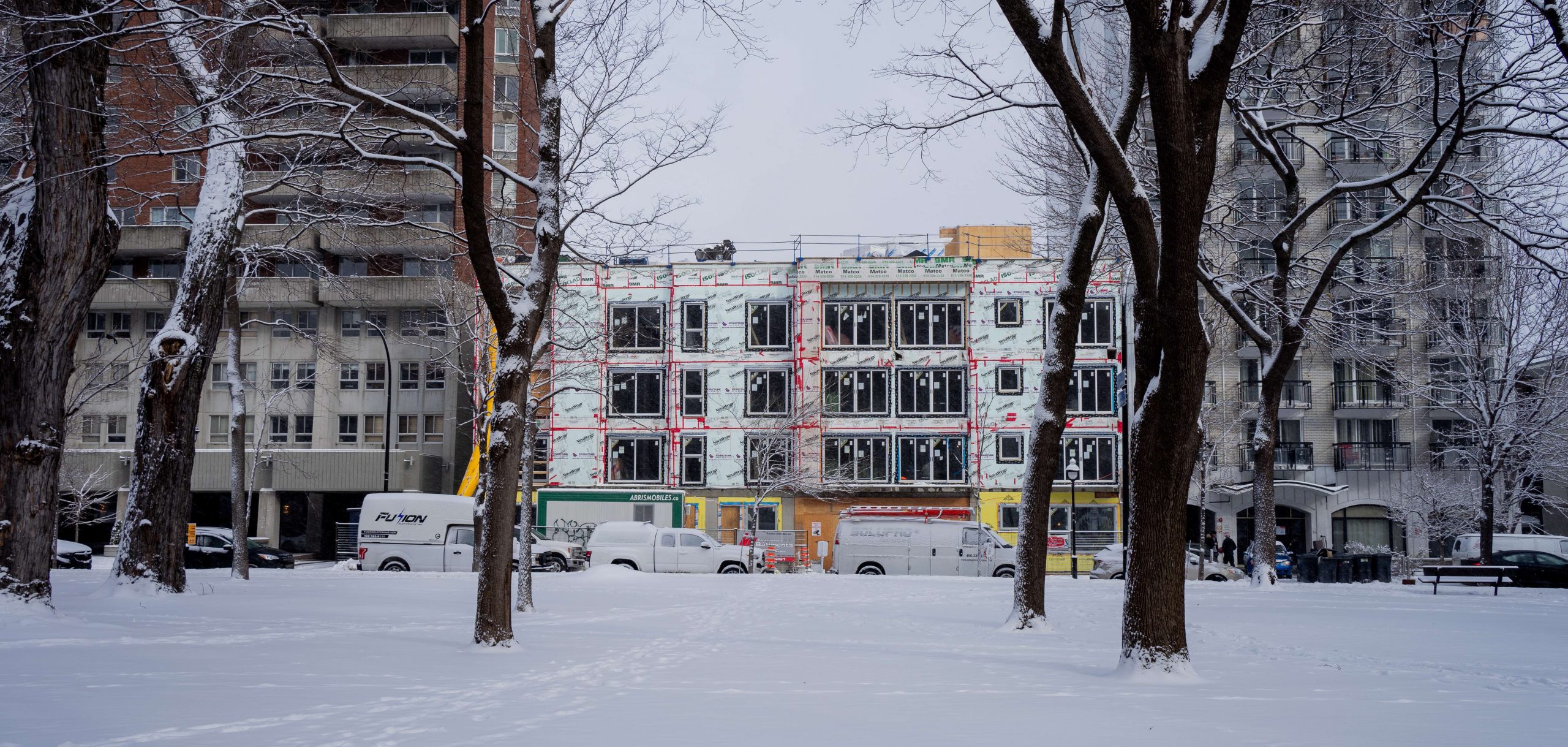“Not only are rental prices hiking every year but also the vacancy rates are currently at a 15-year low,” Megan Quigley said.
As vacancy rates hit record lows in Montreal, the Concordia Student Union (CSU) and the Unité de travail pour l’implantation du logement étudiant (UTILE) strike back for student rent by opening the Woodnote Collaboration.
The Woodnote Collaboration project will be an $18-million building that will offer 90 units to house a total of 144 students. Though the building will only be built by July 2020, students can apply as of Feb. 5 for the first phase of available units. The building will be located on the corner of Papineau Avenue and Sherbrooke Street across from Lafontaine Park.
“The housing crisis is making finding quality housing particularly difficult for students. Not only are rental prices hiking every year but also the vacancy rates are currently at a 15-year low,” said Megan Quigley, an assistant at the Housing and Job Resource Center (HOJO), in an email to The Concordian. “It can be challenging for students to be competitive renters especially if they do not have credit histories, are new to Quebec, etc.”
Vacancy rates in Montreal dropped to 1.5 per cent in 2019 and are expected to keep tumbling to 1.3 per cent this year, as indicated in an article by the Montreal Gazette. In the meantime, the average rental pricing rate in Montreal climbed to $841 in 2019, an increase of 3.6 per cent from the previous year, reported Global News.
Quigley mentioned to many issues students are facing in regard to housing. “Sometimes we see students who are facing discrimination at the application stage due to their citizenship, immigration status, age, etc.,” Quigley said. “We often see students in precarious or even illegal housing situations, or being subjected to unlawful and predatory landlord practices.”
Other factors include short-term rental companies like Airbnb. A study published in 2019 by McGill University found that those companies take roughly 31,000 housing units out of the Canadian market with thousands in Montreal only, reported the Montreal Gazette.
General coordinator and spokesperson of UTILE Laurent Levesque thinks the Woodnote Collaboration project will help students in need; although the organization still has a long way to go.
“Obviously, 90 units are not enough, and we expect the Woodnote to fill up very quickly,” Levesque said in an email to The Concordian. “We are already working on another 120-unit project, open to students of all campuses, slated to open in Rosemont in 2022.”
The building currently under construction was initially funded by the CSU after a referendum in 2015. The initial $1.85 million from the CSU’s Popular University Student Housing Fund accounted for 10 per cent of the total costs. The City of Montreal also donated $1.6 million. Other investors included the Fond d’investissement pour le logement étudiant, the Canadian Mortgage and Housing Corporation, and Desjardins.
“Our objective now is to start many more projects, because with a housing crisis like the one we’re facing it’s urgent to offer students more housing options,” said Levesque.
Students can send application forms for available units on woodnote.coop.
Photo courtesy of UTILE
